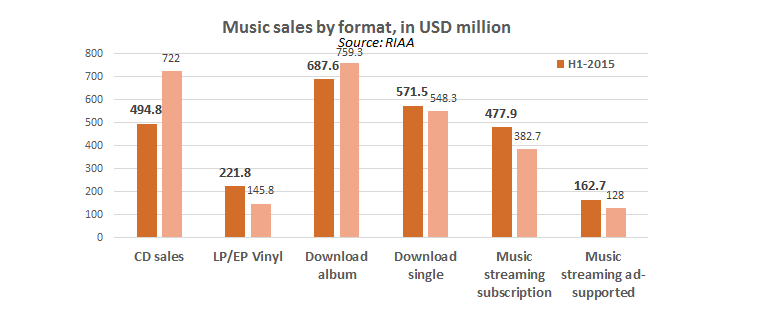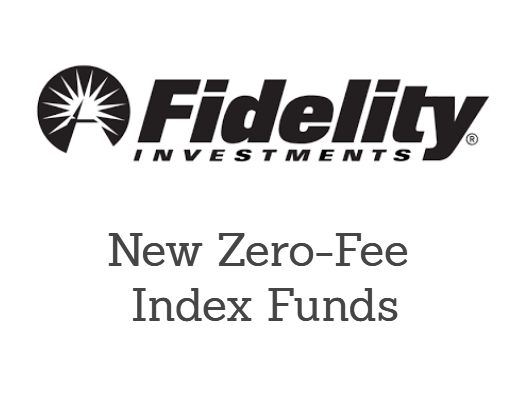![By Meul (Own work) [GFDL (http://gnu.org/copyleft/fdl.html), CC-BY-SA-3.0 (http://creativecommons.org/licenses/by-sa/3.0/) or FAL], via Wikimedia Commons Vinyl vs Digital Music (Who Owns The Future?)](https://i2.wp.com/upload.wikimedia.org/wikipedia/commons/thumb/0/02/Disque_Vinyl.svg/226px-Disque_Vinyl.svg.png?resize=226%2C226&ssl=1) According to mid-year figures by US recording association RIAA, music revenues from vinyl sales rose an astonishing 52.1% compared to last year, amounting USD 221.8 million. It’s successor the CD is facing tough times with revenues declining 31.5% to USD 494.8 million. CD album sales are now surpassed by downloads. So digital and analogue are gaining market share. Are consumers giving us mixed signals here?
According to mid-year figures by US recording association RIAA, music revenues from vinyl sales rose an astonishing 52.1% compared to last year, amounting USD 221.8 million. It’s successor the CD is facing tough times with revenues declining 31.5% to USD 494.8 million. CD album sales are now surpassed by downloads. So digital and analogue are gaining market share. Are consumers giving us mixed signals here?
Quality listening
The vinyl revival in the late nineties and early zeroes were once attributed to the dance scene, where DJ’s preferred the touch of the black gold on their turntables. The flexibility of CD’s in mixes, cuts and scratches wasn’t there so a lot of dance tunes were still pressed on vinyl. However, with the advance of digital audio, in mp3 and FLAC-format, and advanced DJ-software this argument became less valid in the recent years. So what is saving the vinyl? The answer is in the unmatched sound, according to audiophiles. Where a CD presents a clean sound, the vinyl offers more warmth. But also on a more technical level audiophiles say that vinyl, while analog, captures the sound waves better than the CD, as opposed to a digital recording which only takes snapshots (however at a very high rate). But before this turns into a technical debate, vinyl offers an unique sound whereas CD’s are nowadays matched by download formats. So the CD is experiencing much harsher competition.
The digital age
With the Apple Music launch earlier this year, another noteworthy music streaming service based on a subscription entered the arena. During H1 2015, paid subscription streaming services recorded revenues of USD 477.9 million, a 24.9% increase compared to last year. Combined with revenues for ad-supported services (USD 162.7 million, +27.1%), audio streaming has surpassed CD sales. Together with the sales of downloads, we can speak of a digital age. Music streaming and downloads are the mass market, but also audiophiles are discovering the digital market. Download sites such as HD-tracks.com and Qobuz.com are offering Hi-Res Audio. This standard offers higher bitrates and sample size and therefore come very close to the studio recordings. Qobuz is also offering a ‘lossless’-music streaming service and offers a package where customers can buy hi-res albums at a reduced price. It will be interesting to see if vinyl-sales can keep up the current growth rates, when arguably a digital alternative is available.

Streaming takes over
It seems only a matter of time before we see the CD disappear. In user comfort and quality there are better options. The trends are vinyl, streaming services and hi-res audio. The latter is probably only interesting as a niche market, since it takes experienced listeners to hear the difference, mostly due to the quality of hardware i.e. device the music is played on. With ear pods on a mobile phone it’s difficult to spot the difference between 320kpbs mp3, lossless cd-quality or hi-res audio. So music-streaming, basically 320kpbs mp3 or sometimes lossless, is the mass market with the highest potential. As previously reported, music-streaming service Deezer will be the first real option for investors to take advantage of this trend. Apple Music is not a major driver of Apple revenues, so we can’t consider that an investment opportunity.
An interesting development is the decline in single downloads, which decreased 9.4% to USD 687.6 million. This could indicate that downloads are losing market opposed to streaming services. Apple Music could be the answer to a possible decline in iTunes sales. It’s however early to tell. But it’s clear that in five years the music industry will have a complete different shape. There’s still a place for a physical format, but it will be probably vinyl which will survive the digital age. CD’s are history, as may be a large part of the download market which will lose their place to music streaming services. Hi-Res audio may acquire its own place. But in the end, since high quality formats are gaining more market share, the music listener will win.

